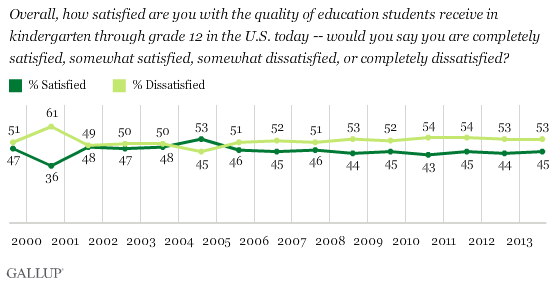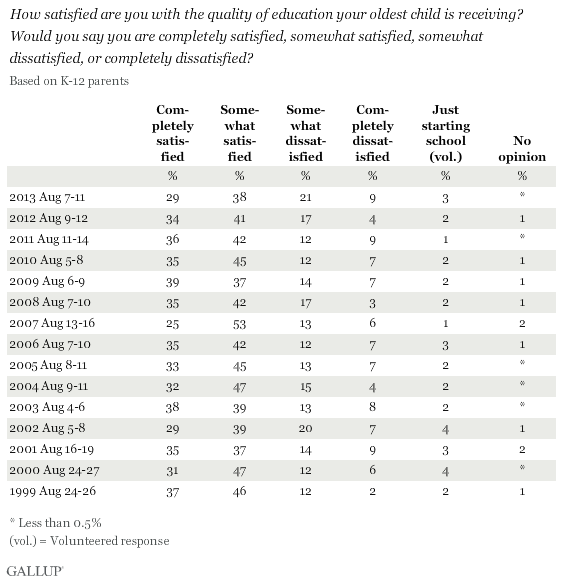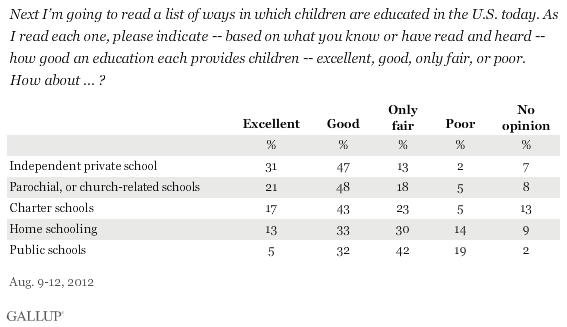What are the Common Core State Standards? And what is the controversy?
The Common Core is a set of high-quality academic standards in mathematics and English language arts/literacy (ELA). These learning goals outline what a student should know and be able to do at the end of each grade. The standards were created to ensure that all students graduate from high school with the skills and knowledge necessary to succeed in college, career, and life, regardless of where they live.It is hard to argue with the concept of high quality academic standards. It would seem.
Yet a controversy is brewing. The Common Core controversy is typical of any American public education reforms. The controversy has two parts: who controls education decision making and how are our current students doing academically. As you will see, underlying these controversies are people who have a vested interest in the status quo.
The first part of the controversy is the assumption that all students in America would benefit from a Common Core curriculum.
This would mean that all 50 states could agree on what students should learn. The concept of a "common core" runs counter to the fact that education in America is a state/local endeavor. In our country, each state has a Department of Education that sets learning standards, assesses schools and districts through a common test and creates graduation, attendance and governance guidelines for its schools. Each local school district (there are 499 in Pennsylvania) has their own school board, tax rate, superintendent, teachers union and program that is unique, yet aligned with the state guidelines. Thus the concept of a Common Core, that is created on a national level, is at odds with our history of state and local control.
It is important to note that the Common Core is not a federal initiative. It is also important to note that participation in the Common Core is voluntary by state.
The nation's governors and education commissioners, through their representative organizations, the National Governors Association Center for Best Practices (NGA) and the Council of Chief State School Officers (CCSSO), led the development of the Common Core State Standards and continue to lead the initiative. Teachers, parents, school administrators, and experts from across the country, together with state leaders, provided input into the development of the standards. The actual implementation of the Common Core, including how the standards are taught, the curriculum developed, and the materials used to support teachers as they help students reach the standards, is led entirely at the state and local levels. (http://www.corestandards.org/about-the-standards/frequently-asked-questions/)Finally, it is up to the state to determine how student achievement will be measured once the Common Core is implemented. Some states will create their own assessment, others will join one of the consortiums that are creating assessments that the state could adopt. However, the state assessments may be used to comply with federal efforts to ensure quality education such as No Child Left Behind (NCLB). Frankly, any attempt at a national strategy for education must be filtered through the 50 states and the local school districts. So part of the controversy is at the local or state level where politicians, parents, school boards, teachers unions fight any attempt at a more centralized control of curriculum, instruction and assessment.
The second part of the controversy is the assumption that students in America lag behind the world in academic achievement.
By most any measure of educational attainment, American youth, our children, are not competitive with the rest of the world.
"The results from the 2012 Program for International Student Assessment (PISA), show that teenagers in the U.S. slipped from 25th to 31st in math since 2009; from 20th to 24th in science; and from 11th to 21st in reading, according to the National Center for Education Statistics, which gathers and analyzes the data in the U.S."
 |
| 2012 Program for International Student Assessment (PISA) |
"Let others have the higher test scores. I prefer to bet on the creative, can-do spirit of the American people, on its character, persistence, ambition, hard work, and big dreams, none of which are ever measured or can be measured by standardized tests like PISA."So in some sense, part of the Common Core backlash is a disagreement with the assumption that there is something we need to fix in our educational system. Many people, led by Ravitch, suggest we are doing fine and the only problem our education system has is too much meddling (tests) from federal and state governments and not enough funding from those very same governments.
 |
The table on the right shows the graduation rates for 2010-11 by state and selected cohorts.
Total graduation rates range from 88% in Iowa to 59% in the District of Columbia. For children with disabilities the graduation rates range from 77% in Texas to 23% in Nevada and Mississippi. The graduation rates for economically disadvantaged students range from 86% in South Dakota to 53% in Nevada.
And when you localize even further you can find outrageous regional discrepancies. For example, graduation rates for African-American males are as high as 74% in Montgomery County, Maryland and as low as 20% in Detroit, Michigan.
Limiting the discussion to American education, you find significant disparities between states, cities, suburbs and rural areas. The education you get in Nevada is vastly inferior to that of Vermont.... the education you get in Georgia is vastly inferior to that of Wisconsin. And if you have special needs, or are an ELL student, or an economically disadvantaged student, or a student of color your probability of graduating is very much dependent upon where you attend school.
The Common Core initiative is an attempt to level the playing field by providing quality benchmarked education across all public schools in America.
As a classroom teacher, principal and parent (and admitted math geek) I have always been interested in drilling down into these curriculums and assessments to see what they are all about.
The Common Core suggest K12 education standards that should be the goal of locally created curricula, assessments and instruction. Educators are beginning to look into what "Common Core" type problems might look like. Here is an example of four math problems and where they fit into our classrooms.
1. Round 4298 to the nearest hundred.
a. 4298This first problem is a standard rounding problem from 4th grade. It might appear on a chapter or standardized test. Use of multiple choice makes grading the problem much easier. It also provides the student with possible answers to consider. It is also prone to guessing.
b. 4000
c. 4300
d. 4290
2. Round 51,230 to the nearest thousand. ______________
The second problem is an "open ended" problem where there are no multiple choice solutions. It would probably appear on a teacher authored chapter test or quiz. Since there are no possible solutions given, this might be considered a slightly harder problem. The teacher can review the student's answer to ascertain whether the student understands or where they might have gone wrong.
3. Put the following numbers in correct order:
41235, 42135, 41345, 41609 and 40989The third problem is a basic Common Core type problem to determine if students understand place value. What makes it a Common Core type problem is that the problem is a little more common in the real world (order a set of numbers) and it attempts to assess a student's knowledge of place value. It forces the student to work with a set of numbers.
4. The San Francisco Giant’s Stadium has 41,915 seats, the Washington Nationals’ stadium has 41,888 seats and the San Diego Padres’ stadium has 42,445 seats.
Compare these statements from two students.
Jeff said, “I get the same number when I round all three numbers of seats in these stadiums.”
Sara said, “When I round them, I get the same number for two of the stadiums but a different number for the other stadium.”
Can Jeff and Sara both be correct? Explain how you know.
The fourth problem is a more complex Common Core type problem that addresses both place value and rounding conceptually.
As you might guess there is a huge controversy over the fourth problem. Inherent in the solution of the problem is that the student must read, comprehend, understand place value and be able to problem solve by rounding the same number to different degrees (tens, hundreds, thousands and ten thousands).
Those who support the Common Core see the fourth question as being a synthesis of the skills necessary to succeed in the 21st Century: application of knowledge, problem solving and critical thinking.
Those who are against the Common Core see the fourth question as a bad question. What does reading, writing and explaining have to do with mathematics? The fourth question is hard and meant to confuse us. This is the reason math is so difficult and so many people have trouble with it.
Parent Perceptions
It might be of value to look at whether American's truly believe our education system is doing well. These surveys were conducted prior to the development of the Common Core. Let's look at some Gallop Poll results.



What does this data tells us?
- The general public is split almost 50-50 over the quality of K-12 education in our country.
- Over a 14 year period, approximately 75% of K-12 parents are (completely/somewhat) satisfied with the quality of the schools their children attend.
- The perception of the public is that the more selective a school is, the better it is (private 78%, parochial 69%, charter 60%, public 37%).
This data is a mixed review. Parents are more satisfied with our education system than the general population. Is that because they are more intimately knowledgeable about it, or is it because the general population works with graduates and are disappointed in their skills? Or is because the media portrays the negative aspects of schools?
The more interesting part of the questions pertains to the perception by "type" of school. The more selective a school is, the higher its perceived quality. I would suggest that this Gallop data points out a uniquely American concept. In America, education is seen as a commodity that one obtains through home purchases (determining your school district), choosing a magnet or charter school, or through tuition at a private or parochial school. 75% of the K-12 parents surveyed were happy with their choices. This is different in other countries where education is seen as a civil right, is centrally managed/funded and is of a consistent quality no matter where you live or go to school.
So why is there a backlash against the Common Core from parents. With 75% of American parents satisfied with their children's education, it is possible that they don't see the need for a Common Core initiative. It may be a coincidence, but 22% of American school age children live in poverty and seldom have the means to make a school choice. It may be perceived that the Common Core is attempting to solve an urban or poor problem and is not needed in all schools in America.
The more interesting part of the questions pertains to the perception by "type" of school. The more selective a school is, the higher its perceived quality. I would suggest that this Gallop data points out a uniquely American concept. In America, education is seen as a commodity that one obtains through home purchases (determining your school district), choosing a magnet or charter school, or through tuition at a private or parochial school. 75% of the K-12 parents surveyed were happy with their choices. This is different in other countries where education is seen as a civil right, is centrally managed/funded and is of a consistent quality no matter where you live or go to school.
So why is there a backlash against the Common Core from parents. With 75% of American parents satisfied with their children's education, it is possible that they don't see the need for a Common Core initiative. It may be a coincidence, but 22% of American school age children live in poverty and seldom have the means to make a school choice. It may be perceived that the Common Core is attempting to solve an urban or poor problem and is not needed in all schools in America.
Political Perceptions
The Common Core effort initially received a huge amount of support from all sectors.
The state-led effort to develop the Common Core State Standards was launched in 2009 by state leaders, including governors and state commissioners of education from 48 states, two territories and the District of Columbia, through their membership in the National Governors Association Center for Best Practices (NGA Center) and the Council of Chief State School Officers (CCSSO). State school chiefs and governors recognized the value of consistent, real-world learning goals and launched this effort to ensure all students, regardless of where they live, are graduating high school prepared for college, career, and life.
43 States, the District of Columbia and 4 US Territories have adopted the standards. All of these states agree that rigorous educational standards are the key to a quality education system. Industry leaders, policy makers, teachers unions, universities all were on board with the Common Core. It is not a federal program, nor was it developed by the federal government. And initially, both the Republican and Democratic Party endorsed the effort. Frankly, that's quite an endorsement. So who's complaining? Let's get to the "core" of the Common Core backlash.
Crazy Politicians
June 20, 2014 (NPR) - Louisiana Gov. Bobby Jindal said Wednesday that he wants to cut ties with the Common Core State Standards, the benchmarks in reading and math that he helped bring to the state four years ago, and replace them with new, Louisiana-specific standards. "We won't let the federal government take over Louisiana's education standards," Jindal said in a statement. "We're very alarmed about choice and local control over curriculum being taken away from parents and educators."
Can you imagine "Louisiana-specific" standards for mathematics and language arts? Maybe mathematics and English are "different" in Louisiana. Sadly, Louisiana has one of the lowest graduation rates in the country. This is about paranoia, defensiveness, rationalization and loss of control. And it's going on across the nation.
April 8, 2013 (National Review Online) - “I don’t want to have a federal bureaucracy monitoring whether or not we are having the right programs in our schools,” said Virginia governor Bob McDonnell recently. “The bottom line is, we don’t need the federal government with the Common Core telling us how to run our schools in Virginia. We’ll use our own system, which is very good. It’s empirically tested.”
Texas governor Rick Perry, never one to mince words, said, “The academic standards of Texas are not for sale.”
McDonnell was recently convicted on federal corruption charges and removed from office. Perry was recently indicted by a grand jury on felony charges on abuse of power. When politicians make decisions about our education systems they are viewing the situation through a political expediency lens, not an educational empowerment lens.
July 11, 2014 (Politico) The American Federation of Teachers will open its annual convention Friday morning with a startling announcement: After years of strongly backing the Common Core, the union now plans to give its members grants to critique the academic standards — or to write replacement standards from scratch. The AFT will also consider a resolution — drafted by its executive council — asserting that the promise of the Common Core has been corrupted by political manipulation, administrative bungling, corporate profiteering and an invalid scoring system designed to ensure huge numbers of kids fail the new math and language arts exams that will be rolled out next spring. An even more pointed resolution flat out opposing the standards will also likely come up for a vote." (Teachers union takes on Common Core)
So the concern is about creating an "invalid scoring system designed to ensure huge numbers of kids fail the new math and language arts exams". This statement states that the Common Core has been "kidnapped" by people with a vested interest in making students fail (thereby discrediting the efforts of teachers and teacher unions). This level of paranoia is frightening.
By definition, if you raise academic standards initial test scores will be lower. This doesn't make the exam invalid, it recalibrates student achievement based on more difficult skills. Early exam data should inform educators and the public where we need to put our efforts. Ultimately, accountability will become a factor, as it should. The unions backing away from the Common Core is about paranoia, loss of educator control and a concern about making public the low quality of achievement in our country's schools. When unions make decisions about our education systems they are viewing the situation through a teacher advocacy lens, not an educational empowerment lens. If the union had integrity, it would support improved academic standards, but would be leading the way for a more appropriate and well thought out implementation methodology, timeline and marketing strategy.
By definition, if you raise academic standards initial test scores will be lower. This doesn't make the exam invalid, it recalibrates student achievement based on more difficult skills. Early exam data should inform educators and the public where we need to put our efforts. Ultimately, accountability will become a factor, as it should. The unions backing away from the Common Core is about paranoia, loss of educator control and a concern about making public the low quality of achievement in our country's schools. When unions make decisions about our education systems they are viewing the situation through a teacher advocacy lens, not an educational empowerment lens. If the union had integrity, it would support improved academic standards, but would be leading the way for a more appropriate and well thought out implementation methodology, timeline and marketing strategy.
Crazy Comedians
May 6, 2014 (Diane Ravitch at billmoyers.com) But when Louis C.K. started tweeting, the world sat up and listened. And he made sense! No jargon, no excuses, no false promises: just a dad wondering, What’s going on here? This stuff is nuts. It makes no sense.
He tweeted: My kids used to love math. Now it makes them cry. Thanks standardized testing and common core! — Louis C.K. (@louisck) April 28, 2014
He tweeted: Everything important is worth doing carefully. None of this feels careful to me.— Louis C.K. (@louisck) May 1, 2014
He tweeted: Teachers are underpaid. They teach for the love of it. Let them find the good in cc without the testing guns to their and our kids heads.— Louis C.K. (@louisck) May 1, 2014
He tweeted: I trust a teacher over Pearson or bill hates any day of the week. Don’t all be so defensive and don’t be such bullies.— Louis C.K. (@louisck) May 1, 2014
He tweeted: my favorite responses have been adults proudly announcing that they were able to solve these problems from a 3rd grade test.— Louis C.K. (@louisck) May 1, 2014Ha...ha...ha... really funny stuff. Let's get our education wisdom from Louis C.K. His comedic persona is based on a whining, self-centered American. He sure does nail it.
The Common Core States Standard initiative is an excellent education effort with broad support. The standards are very well written. And shockingly, quality standards in Mathematics and English Language Arts are not state dependent. Assessment systems are being developed that are aligned with the standards. Not solely to evaluate the teachers. Not solely to evaluate schools. Not solely to provide parents with feedback on how their child is doing. But to make educational decisions that are data driven. The assessments currently are the center of most criticism about the Common Core. They have room for improvement. However, I would suggest that given the same level of scrutiny, local assessments, teacher made assessments, the SAT/ACT assessments and most any standardized assessment would receive a similar level of acrimony.
As one might be able to predict, the implementation of the Common Core quickly became muddled. Teachers were not prepared and the emphasis was on the test before the standards were adequately implemented. If education leaders, governors, superintendents, principals or parents use low test scores to beat up teachers, than the adults are the problem, not the test. Any education innovation that I've experienced takes at least 3-5 years to implement. This concept of American education by public opinion is madness. Education is not a value or belief like religion, it is a method of empowering humans to reach their potential - physically, mentally and intellectually. Throwing out the test because it may be misused is a rationale used to protect the adults.
Let me finish with a story. A good friend of mine was deeply concerned about the implementation of the Common Core at her daughter's middle school. This friend is an educator, works in schools and has two advanced degrees. She stated "I'm all for rigorous standards and demanding more from my daughter. However, this Common Core is a mess." "What's going wrong?" I said. "Well, her math teacher stated that she needed to work in groups, cooperate with others and problem solve. Unfortunately, she is doing all the work, yet they are graded as a group. It's not fair... and my daughter is being taken advantage of."
So I asked, "How are you handling this?" "Well I went and spoke to the teacher who complained that this is how the Common Core was to be taught. Give the kids a project and have them work together. Then they are graded as a group. That's what I'm supposed to do."
The problem is this is not what he is supposed to do. Here is what the 8th grade math standards suggest are the Mathematical Practices that should be used:
- Make sense of problems and persevere in solving them.
- Reason abstractly and quantitatively.
- Construct viable arguments and critique the reasoning of others.
- Model with mathematics.
- Use appropriate tools strategically.
- Attend to precision.
- Look for and make use of structure.
- Look for and express regularity in repeated reasoning.
I will repeat, it takes 3 to 5 years to implement a quality educational program. If we don't get past the political fight, we will never improve our schools. It always seems to get back to the adults and their needs. When politicians, elected officials, unions, book publishers, the media and parents with a hidden agenda get involved in education, we end up with the lowest common denominator.
Think like a parent. You want the highest quality, most rigorous education possible for your child... for all children. That's what the Common Core is getting at.
*By the way the question to #4 is that they both are right. Sara rounded to the nearest hundred and Jeff to the nearest thousand.

No comments:
Post a Comment